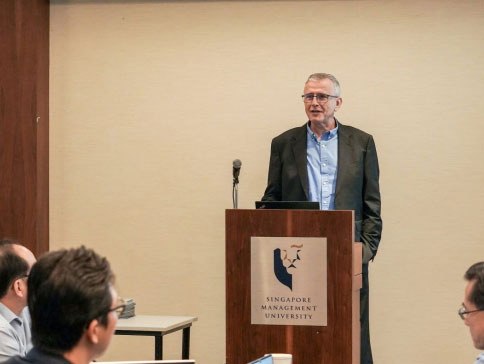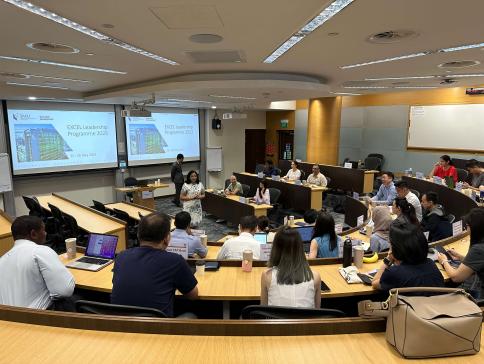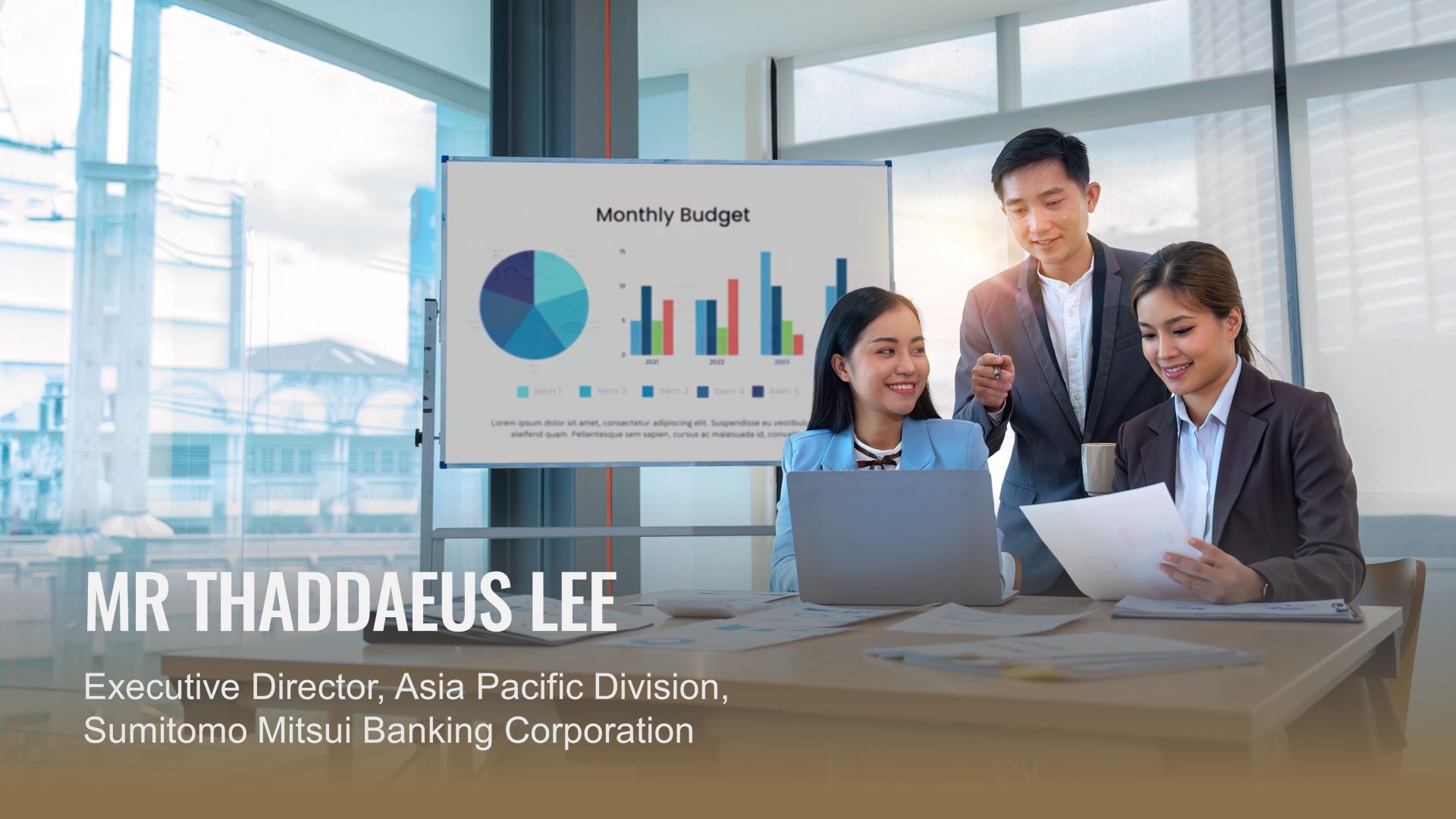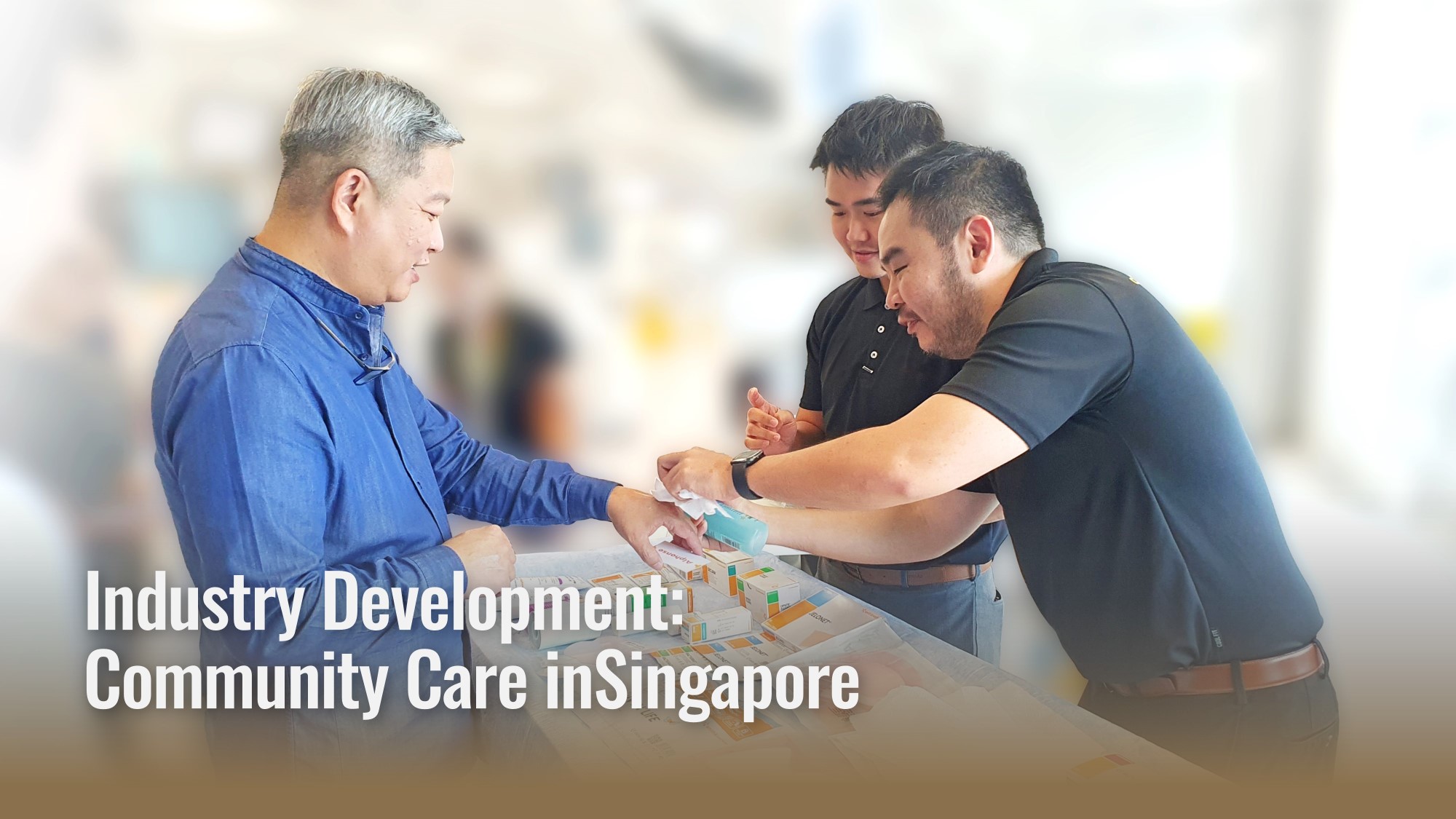Transforming People and Organisational Performance

For Individuals
Our programmes provide an opportunity for executives to learn from industry experts, gain insights into emerging trends, and push themselves beyond their comfort zone.
With a focus on practical applications and hands-on learning, we offer a unique platform for executives to develop their skills, advance their careers and widen their professional network.

For Organisations
Our custom programmes can be tailored to your organisation's learning needs and goals.
This personalised approach allows your employees to gain insights that are directly applicable to their roles and responsibilities, empowering them to implement new strategies to drive business growth and foster a culture of continuous learning and development.
Our Value Proposition
By combining cutting-edge research, world-class faculty, and real-world case studies, SMU Executive Development (SMU ExD) delivers executive education programmes that are tailored to the specific needs and goals of each organisation. We provide our learners with a truly transformative experience, equipping them with the skills and knowledge they need to lead their organisations towards sustainable growth in an ever-changing business landscape.
With a focus on practical, hands-on learning and measurable results, SMU ExD provides senior level executives with the tools they need to innovate, problem-solve, and drive success in their organisations. And with opportunities to network and learn from peers and thought leaders, SMU ExD is the perfect platform for senior executives looking to take their careers to the next level.

Organisational Impact
Countries we work with
Programmes conducted
Executives Engaged
Unique Programmes Designed
Industry Specialisations

Upcoming Programmes

This programme offers an ideal opportunity to strengthen your understanding of the director’s role and how to serve the firm more effectively.In Singaporean law, the board of directors is held to be ultimately responsible for virtually every aspect of their company’s activities. However, it is impractical for a board to attempt to supervise all aspect of the company’s operations. Thus, boards need to think carefully about their roles and functions and not just accept management agendas.The role of the company director continues to be shaped by a multitude of forces including economic uncertainty, larger and more complex organizations, the increasing pace of technological innovation and a more rigorous regulatory environment. At the same time there is more onus on directors to operate transparently and be more accountable for their actions and decisions.Launched in 2007 in partnership with Singapore Institute of Directors (SID) and continuously updated, the Singapore Directorship Programme (SDP) is the only local directorship training programme leading to the SID Accredited Director status with exam exemption. Set within an Asian context, the six core modules and one elective module are designed to enhance participants’ boardroom skills and update their knowledge and capabilities to navigate an increasingly complex business environment.The SDP is structured in two parts. Participants can obtain a Board Executive Certificate in Directorship by completing the first three modules or continue to obtain a full Accredited Diploma in Directorship by completing all six core modules successfully, with the option to take up module 7 as an elective. The modules can be taken non-sequentially in a period of 24-36 months, providing scheduling flexibility. The first three modules are especially catered to C-suites and senior executives who desire to acquire the foundational knowledge required to prepare themselves to become board directors.Learning methodsEach module relies heavily on peer learning and the collective intelligence and experience of the participants. Questions and objections are thus highly encouraged during the interactive lectures, group discussions, case studies and simulations. Each module is followed by an assessment made of multiple-choice questions and at least one open question which challenges the participants to translate the learning of the module to their organisation or an organisation that they know well.SID Director Competency ModelThe SDP fully supports the SID Director Competency Model[1], as followsCompetency AreaDefinitionMODULES1234567GovernanceThe ability to effect appropriate governance structures and corporate culture to guide and progress the business affairs of the company in a manner that enhances long-term shareholder value, whilst taking into account the interests of other stakeholders.XXXXXXXDuties and PracticeThe understanding of what the role and duties of a board director entails. The ability to adopt board practices that will lead to a credible, and efficient Board and a constructive relationship with Management.X X FinancialThe ability to review financial statements, question accounting treatments, establish internal controls and ensure financial statements and accounting standards are in accordance with ACRA requirements. X RiskThe ability to assess, manage and mitigate risks an organization faces as part of its business, financial, legal, strategic, human and digital activities. This includes the appropriate risk tolerance to minimise liability and safeguard the long-term success of the organisation.XXXXX XStrategyThe ability to participate in the development of the company’s strategic plan, identify business options and consider the best strategy to achieve organisational goals. XX X XDigitalThe ability to provide direction and advice on how digital technology can enable business strategy, oversight for financial investment into digital assets, and governance for high-risk investments that are integrated with business strategy and financial management practices. XX XHuman CapitalThe ability to enhance human capital and workplace issues such as diversity, culture, performance, employee engagement and talent, that support business strategy and impact corporate culture. X XXSustainabilityThe ability to define structures, policies and processes necessary for a company to manage sustainability response to potential financial risks and opportunities. X [1] For more details about the SID Director Competency model, please contact SID.

In a team, every individual is expected to display numerous leadership qualities. The capacity for great leadership is innate to some extent. At SMU Executive Development, we believe that becoming an effective leader is within every individual’s DNA, be it a team or an organisation, whether someone reports to you or not. Team Leads are increasingly expected to leverage various stakeholders, to engage with them, to remain aware of the business pace, and to deal with diverse strengths and of their teams. Using these key elements integral to the role played by leaders, SMU Executive Development has crafted the TEAM LEAD PROGRAMME (TLP) for high potential teams (L- everage / E- ngage / A – ware / D – iverse). TLP is taught by SMU faculty and industry professionals who will guide participants in their leadership journey.

Building leadership capabilities within the infrastructure sector across the regionInfrastructure Asia (InfraAsia), World Bank Group (WBG) and Singapore Management University (SMU) have joined hands to develop a bespoke course that builds leadership capabilities within the infrastructure sector across the region. This collaboration leverages SMU’s expertise in facilitating sustainable transitions to address the pressing infrastructure challenges facing Asia. IN PARTNERSHIP WITH PROGRAMME OVERVIEWSustainable Finance for Public/Private Sector Leaders in the Infrastructure DomainAs the world accelerates its shift towards a low-carbon future, sustainable finance has emerged as a critical lever for public sector leaders shaping infrastructure development. This tailored executive programme equips ASEAN and South Asian policymakers and practitioners with practical tools to mobilize capital for climate-resilient and inclusive infrastructure.Participants will explore green and transition finance mechanisms, blended finance, taxonomies such as the SG-Asia Taxonomy and ASEAN Taxonomy, as well as instruments like guarantees, insurance, and credit ratings. Real-world case studies—ranging from green bonds to blended financing for early coal retirement—will provide actionable insights. The programme also explores innovative approaches to carbon and transition financing.Organized by Singapore Management University (SMU) in collaboration with Infrastructure Asia and the World Bank Group, this programme combines research-based insights with applied learning. Our goal is to empower decision-makers to drive impactful, bankable, and climate-aligned green infrastructure solutions.By strengthening capacity across public institutions, we support a more sustainable and finance-ready future for Asia’s infrastructure ecosystem.PROGRAMME HIGHLIGHTSThe Sustainable Finance course offers policy and capability training specifically designed for leaders from emerging and developing economies across Asia. Targeting 40 executives—primarily from the public sector, along with select private sector participants involved in infrastructure financing—this programme aims to enhance their knowledge and skills in designing, evaluating, and implementing progressive sustainable finance policies, frameworks, and projects.Participants will also strengthen their individual leadership capabilities, enabling them to navigate the politically, economically, and institutionally complex environments that shape green infrastructure financing in their countries.Delivered as an in-person programme at the SMU campus in the dynamic city of Singapore—renowned for its role as a sustainable finance hub—this executive course facilitates high-level networking with thought leaders, government officials, financial practitioners, and leading academics. This unique gathering encourages the exchange of experiences, fosters the development of innovative financing strategies, and empowers participants to enhance their leadership, problem-solving, and execution skills in driving climate-aligned infrastructure outcomes.PROGRAMME REQUIREMENTSParticipants are required to obtain endorsement (endorsement template here) from their organisation and share more on upcoming relevant infrastructure projects that they are responsible for during registration. Please download and fill up the project template before starting the registration process. You would be asked to present these projects in detail during the course.Kindly ensure the registration form and all supporting documents are completed in English.

In partnership with the Singapore Institute of Directors (SID), this unique module provides a 360-degree board-level view of key strategic areas and issues faced by company directors.The Board has ultimate responsibility for managing risks. The Board should determine the company’s levels of risk tolerance and risk policies, and advise management in the design, implementation and monitoring of the risk management and internal control systems intended to avert crises. Consequently, the Board must work with management in dealing with unpredictable events which may lead to crisis. Of particular importance in our digital world, cybersecurity is now a core component of risk management.
Industry Specializations
Leadership, Talent Development & Change Management
Environment, Sustainability and Governance
Leadership, Talent Development & Change Management
Digital Transformation
Environment, Sustainability and Governance
Cyber Security
FinTech
Leadership, Talent Development & Change Management
Environment, Sustainability and Governance
Technology, Data and Analytics
Leadership, Talent Development & Change Management
Digital Transformation
Environment, Sustainability and Governance
Artificial Intelligence & Machine Learning
Leadership, Talent Development & Change Management
Technology, Data and Analytics
Artificial Intelligence & Machine Learning
Cyber Security
FinTech

